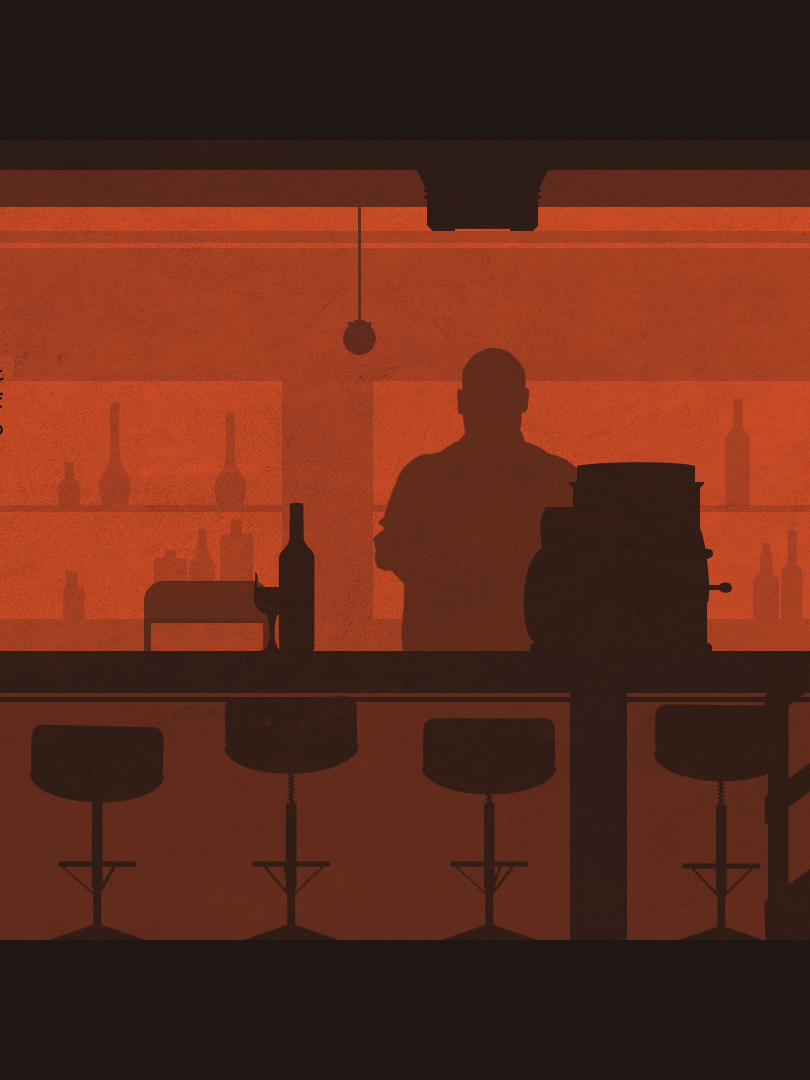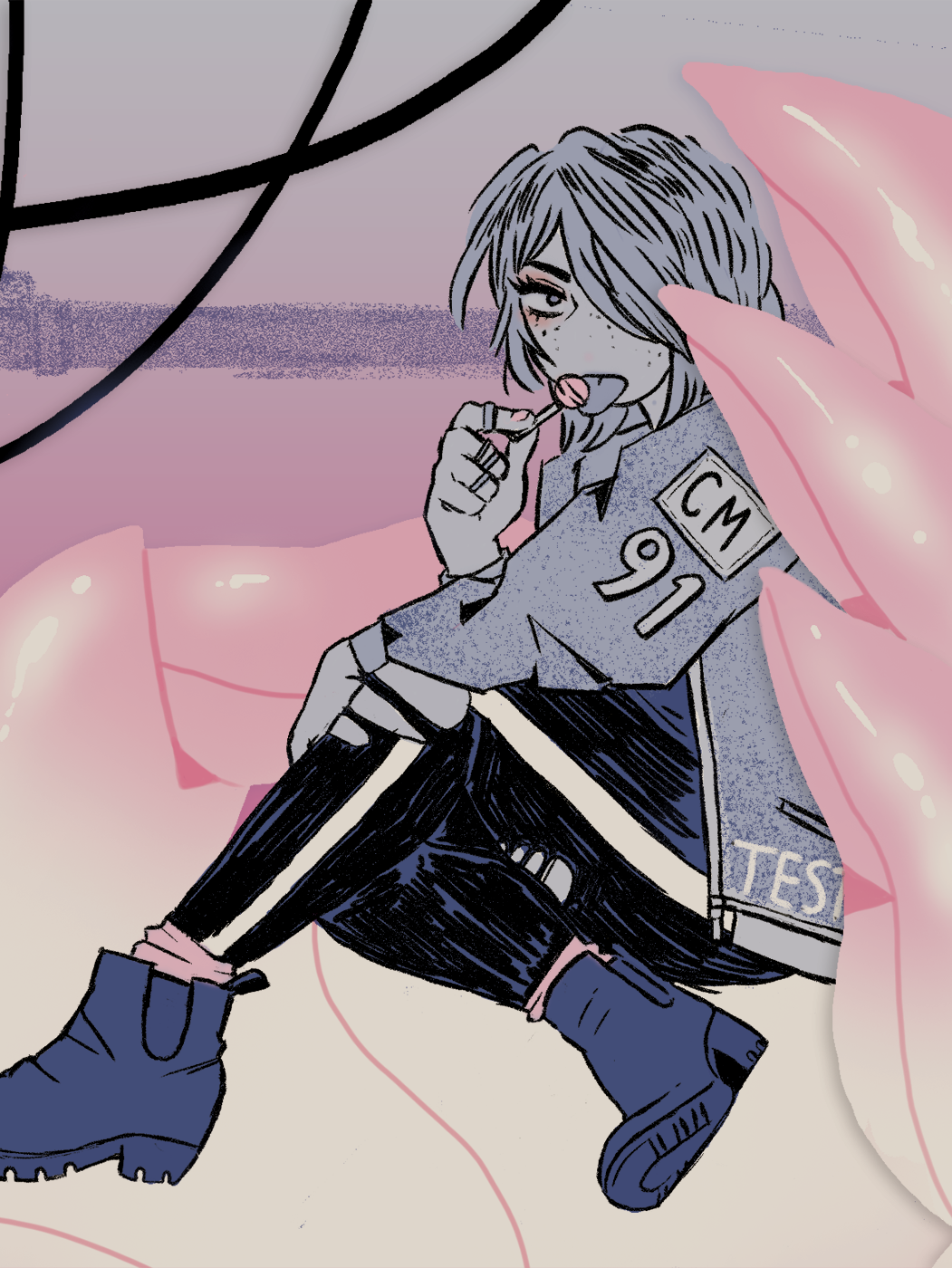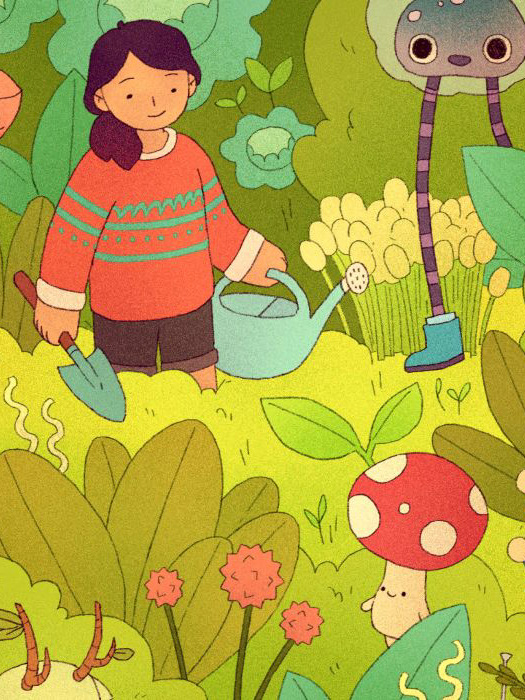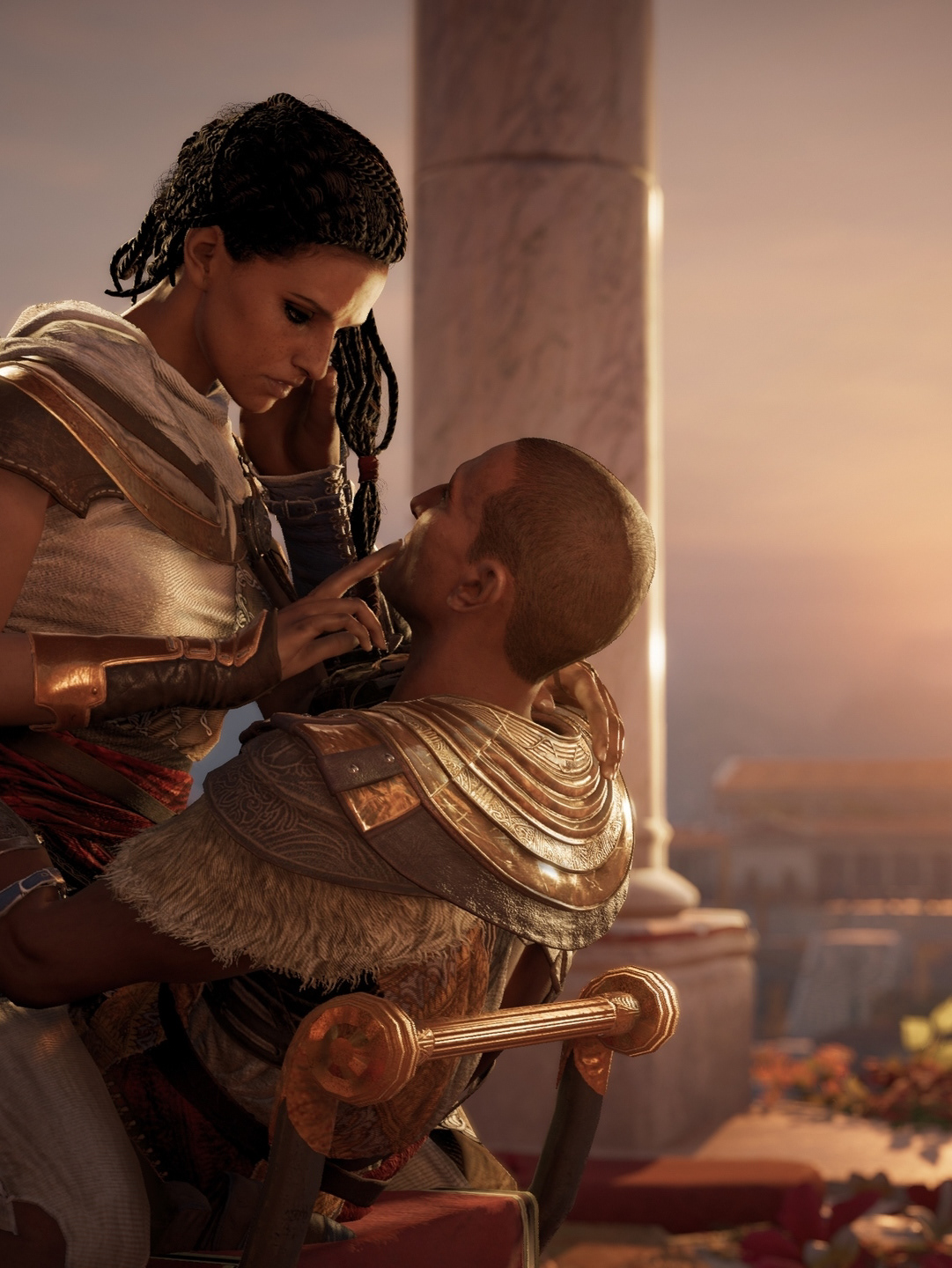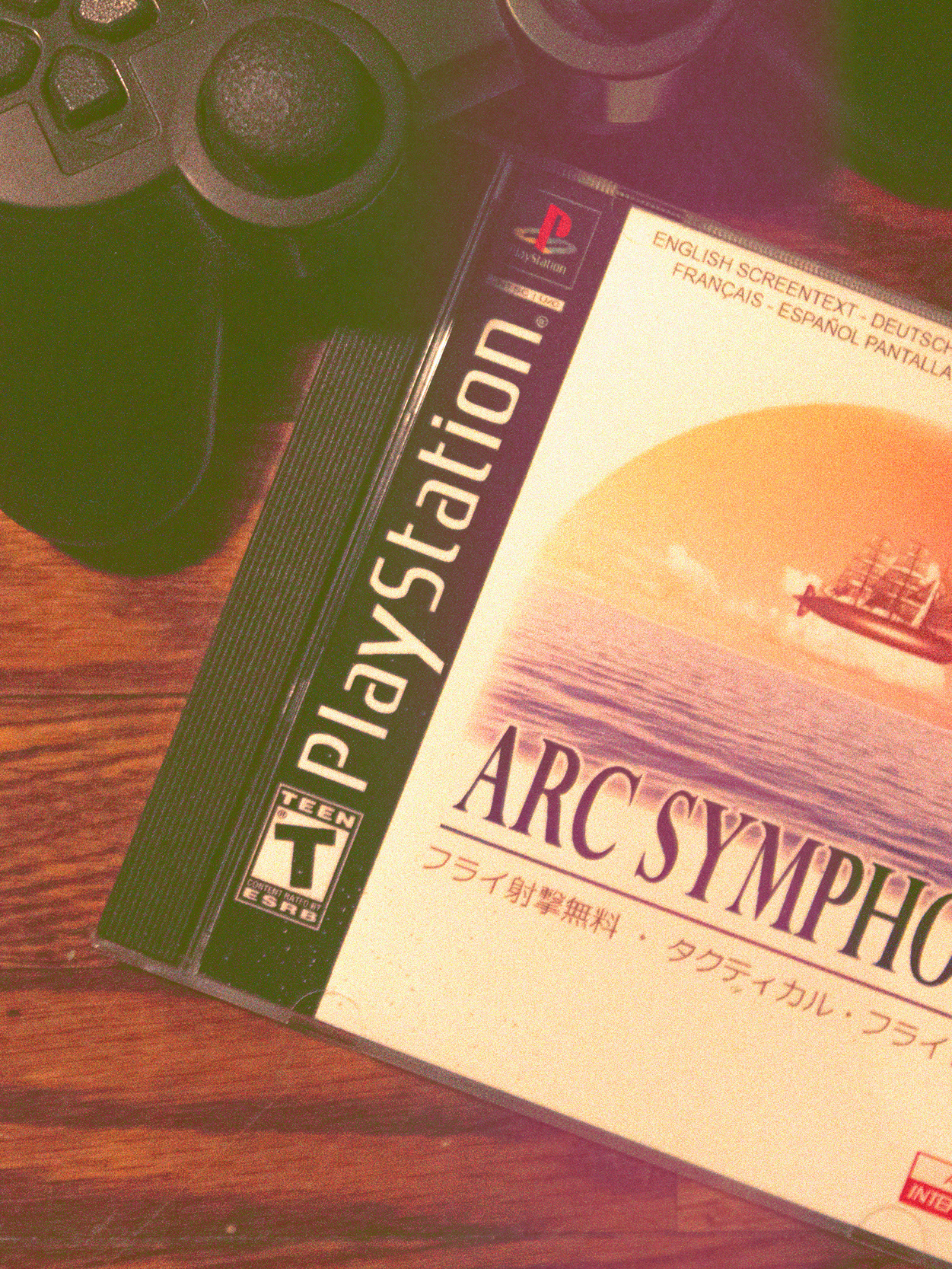The America we know today came from many places: from the stories we know, of heroes and grand adventure, from the tales told around candlelight and commerated through song and story, and also from the many whose stories haven’t become spectacle, but instead were told through strife. Those who still today fight unjust laws and treatment. Where the Water Tastes Like Wine takes these identities and gives us a more accurate picture of America than almost any other game has done so far.
By looking back at the roots of the nation, we can see the path that would lead us to where we are. America has become known for its identity of stories, and Where the Water Tastes Like Wine embraces this. In doing so, it elevates narrative in games.
It all begins with Sting. Yes, that Sting. From The Police? It all makes sense in context. You are a lost soul bound to a contract by 16 Grammy Award winning musician Sting, who voices the Wolf, the narrator of this tale. Your task is to wander the land in search of stories, with the ultimate goal of finding the one place everyone is searching for: The titular place, “where the water tastes like wine”. It won’t be easy, and along the way you’ll meet characters from all walks of life, who are willing to tell their stories. It is through them that you narrow your search. However, they won’t give you their life’s story so easily, and to earn it, you must tell them the tales they desire.You travel through a large stylized version of a map of the United States, walking from place to place and only stopping when a story catches your eye. You are treated to small vignettes, stories both real and fictional, that become your currency. Here you find larger-than-life figures like Johnny Appleseed, the more obscure Leatherman, and many others. As you tell these folk tales, you may even find them later told back to you, but this time they have grown beyond the initial truth. The man becomes a monster, or the bird becomes a spirit prophesying death. You witness the birth of these legends and soon see them spiral away from you, taking on new meaning.
When Where the Water Tastes Like Wine is telling you stories, it is smooth sailing through a land in a troubled time. As you travel between these stories, you feel the burden of distance as you go, getting a grasp of the scale of the country and what it means to be in 1930s Depression-era America. It has such a sense of place that even as a Canadian, I felt somewhat at home despite being lost in these sprawling lands. Between the tales there’s a fantastic score to help drive your weary feet forward. This game is thematic as hell and there lies its strength.
Playing this game and talking about Where the Water Tastes Like Wine without mentioning American culture and legacy feels wrong. Despite my Canadian nationality, I was familiar with much of what I came across throughout the game. American history and folklore is synonymous with pop culture, and almost more than any other nation, American stories are widely told and widely known. Here you can find Johnny Appleseed, or the more obscure Leatherman as larger-than-life figures. Heading into this game, I didn’t feel any sense of disconnect from the source material, thanks to the juggernaut that is American culture. I knew many of the stories going in, and despite it not being my “dream”, the American dream has been evoked so many times in media that it's hard not to get caught up in the romance of it all when diving into a game like this.
That said, Where the Water Tastes Like Wine also reveals the darker side of the American way of life. It has become a game with an even stronger message in the days we find ourselves now facing. Understanding where America is now requires knowing where it came from, and what brought the country to this point. Through the untold stories that this games shines a light on, we begin to see the cracks in the facade of the American dream. There is hope there, but with that comes a great cost to many invisible groups, who have suffered and continue to suffer through strife, hardship, and prejudice. Where the Water Tastes Like Wine is a honest look at American culture at a difficult time for the country, and through these stories we draw parallels to our modern times, and see problems both old and new that need to be faced.
Canadian folklore is a bit more of a mystery than the American tall tales. Asking for stories on both Facebook and Twitter, I began to learn of some more tales that get told over the campfires. There are fairy stories, brought over by European settlers that reflect the harsh untamed land they found themselves in. There are the many stories told by the First Nations peoples, such as those that tell of important figures such as Glooskap, a “man who came from nothing”. There are even more obscure local tales such as that time many folks saw a kangaroo in my old home of Lanark County. There is also the mysterious “hum” that hangs over the city of Windsor like a shroud, with no explanation in sight. These stories lack the notoriety of their American counterparts, but reflect Canadian legacy and the history of our nation. Canadian legacy is less about the stories we tell, instead, it is about discovery and progress.
However, in the name of these pursuits, there were those whose story didn’t fit the script we were writing. Canadian legacy is far from perfect, just like our American counterparts. Chinese Canadians faced dangerous conditions while building the railroad and systemic racism during and after its completion. First Nations peoples were forced to assimilate into white culture through government sponsored residential schools that can be traced back to Canada’s roots in New France in the 1800s, while also facing land theft and prejudice. A problem that we still face today. There were the internment camps in World War Two, in which over 90% of Japanese Canadians faced detainment and loss of property through laws passed by the Canadian government. Even after the war, they found a country that did not welcome them. While wandering the landscape of Where the Water Tastes Like Wine, I found a country similar to my own in many ways, one that shares in our successes, and also in our failures.
Where the Water Tastes Like Wine speaks to American legacy, and by extension the legacy of Canada as well. It’s murky, but our countries share a similar past and can trace similar steps through history. While we ultimately find ourselves on different paths, they run parallel, and understanding this is essential to learning from each other’s mistakes.
The legacy of the game itself in comparison is quite clear. Simply put, the genre of narrative games and the methods of storytelling in games has a new scion, a step forward in not only the way we tell stories in games, but also the stories we tell. What isn’t as clear is the legacy it will leave in terms of games that reference history. While some games aim for historical accuracy but fall short due to bias, Where the Water Tastes Like Wine takes a different approach by striving to evoke the feeling of the era, and by working to cast a wide net and shine a light on what 1930s America looked like for all who lived there. Pulling from archived photos for art inspiration, and assembling a writing team as varied as the country the game is portraying, Where the Water Tastes Like Wine becomes a vessel for the era it resides in.
Listen to “Vagrant Song” as your character wanders the countryside. It changes to reflect the land you find yourself in, from the dusky deep south to the folk-y midwest. This song is emblematic of the very idea of Where the Water Tastes Like Wine. America is diverse, and sometimes divided, but at its heart, there is a tale of hope. There is a dream that unites the coasts, a tune that has been carried straight from revolution. In a game defined by its stories, we find truth in the tall tales it tells, truth of our legacy and of our future.
Listen to “Vagrant Song” as your character wanders the countryside. It changes to reflect the land you find yourself in, from the dusky deep south to the folk-y midwest. This song is emblematic of the very idea of Where the Water Tastes Like Wine. America is diverse, and sometimes divided, but at its heart, there is a tale of hope. There is a dream that unites the coasts, a tune that has been carried straight from revolution. In a game defined by its stories, we find truth in the tall tales it tells, truth of our legacy and of our future.
